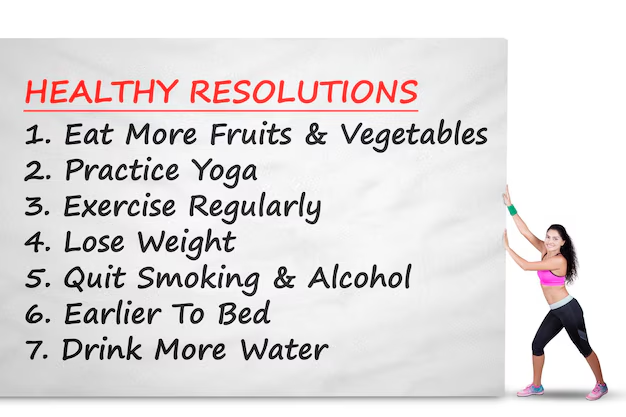
Achieving optimal health involves more than just maintaining a healthy body—it’s about fostering a well-rounded approach that encompasses physical fitness, balanced nutrition, and mental wellness. These three elements work together to create a harmonious lifestyle, contributing to long-term well-being and happiness. Whether you’re just beginning your health journey or looking to fine-tune your habits, this comprehensive guide will help you navigate the essential components of health: nutrition, fitness, and mental wellness.
1. Nutrition: Fueling Your Body for Optimal Health
What you eat plays a vital role in your overall health and well-being. A balanced diet not only provides the energy you need to power through your day but also supports key bodily functions, reduces the risk of chronic diseases, and boosts your immune system.
Focus on a Whole Foods Diet:
- Fruits and Vegetables: Aim for a variety of colorful produce, as different colors represent different nutrients. Leafy greens like spinach and kale are rich in iron, while berries offer antioxidants that help combat inflammation.
- Whole Grains: Swap out refined grains for whole grains such as quinoa, brown rice, oats, and whole-wheat bread. These foods are high in fiber, which helps with digestion, weight management, and regulating blood sugar.
- Lean Proteins: Include sources of lean protein, like chicken, fish, beans, lentils, and tofu. Protein is essential for muscle repair, immune function, and hormone regulation.
- Healthy Fats: Don’t shy away from healthy fats found in nuts, seeds, avocado, and olive oil. These fats are crucial for brain function, cell structure, and hormone production.
Hydration: Staying hydrated is just as important as eating the right foods. Water is necessary for digestion, nutrient absorption, and regulating body temperature. Aim for 8 cups (64 ounces) of water per day, or more if you’re physically active.
Mindful Eating: Incorporating mindful eating practices—such as eating slowly, savoring your meals, and paying attention to hunger cues—can lead to healthier food choices and better digestion.
2. Fitness: Staying Active for Physical Health
Physical fitness is crucial for maintaining a healthy body and preventing chronic diseases. Regular exercise strengthens the heart, muscles, and bones, boosts energy levels, and promotes a positive mood. It also supports weight management and reduces the risk of conditions such as obesity, diabetes, and heart disease.
Types of Exercise:
- Cardiovascular Exercise: Activities like running, swimming, cycling, and brisk walking increase your heart rate and improve cardiovascular health. Aim for at least 150 minutes of moderate-intensity cardio per week.
- Strength Training: Incorporating strength training exercises, such as weightlifting or bodyweight exercises (squats, lunges, push-ups), helps build muscle mass, increase metabolism, and improve bone density. Aim to include strength training exercises two to three times a week.
- Flexibility and Balance: Practices like yoga or Pilates improve flexibility, balance, and posture while reducing stress and preventing injuries. Regular stretching can also enhance mobility and reduce muscle tension.
Exercise Tips:
- Start Slow and Gradual: If you’re new to exercise or returning after a break, start with light activities and progressively increase intensity. This helps avoid injury and builds stamina over time.
- Consistency is Key: Aim for regular, consistent exercise. Setting a schedule and treating it like an appointment ensures that exercise becomes part of your daily routine.
- Mix it Up: Keep your workouts interesting and challenging by combining different types of exercise. This not only prevents boredom but also helps work different muscle groups.
3. Mental Wellness: Nurturing Your Mind
Mental wellness is just as important as physical health, and taking care of your mental and emotional well-being is crucial for leading a balanced, fulfilling life. Mental health affects how you think, feel, and act, influencing your ability to cope with stress, build relationships, and navigate life’s challenges.
Stress Management: Chronic stress can take a toll on both your physical and mental health. Effective stress management techniques are essential for maintaining a positive outlook and reducing the risk of burnout.
- Mindfulness Meditation: Practicing mindfulness or meditation allows you to focus on the present moment, reduce negative thought patterns, and alleviate stress. Just a few minutes each day can help lower anxiety and improve focus.
- Deep Breathing Exercises: Taking deep, slow breaths can activate the body’s relaxation response, reduce heart rate, and help calm your mind in stressful situations.
- Progressive Muscle Relaxation: This involves tensing and then relaxing muscle groups throughout the body, which can help alleviate physical tension caused by stress.
Emotional Well-being: Fostering emotional wellness involves cultivating positive relationships, self-compassion, and a sense of purpose. It’s important to nurture your emotions and seek support when needed.
- Social Connections: Building and maintaining meaningful relationships can provide emotional support, improve mood, and reduce feelings of loneliness. Regular social interaction has also been shown to improve cognitive function and longevity.
- Practice Self-Care: Self-care isn’t selfish—it’s essential. Take time for activities that rejuvenate and energize you, whether it’s reading, taking a walk, or enjoying a hobby.
- Therapy and Counseling: If you’re struggling with mental health issues such as anxiety, depression, or stress, seeking professional support from a therapist or counselor can provide valuable tools and coping mechanisms.
Sleep and Mental Wellness: Good sleep hygiene is crucial for mental wellness. Poor sleep affects mood, cognitive function, and overall mental health. Aim for 7-9 hours of sleep each night and establish a relaxing bedtime routine to improve sleep quality.
4. The Importance of Rest and Recovery
Rest is an often-overlooked component of health. Recovery is just as important as physical activity, as it allows your muscles to repair and your body to rejuvenate. Lack of recovery can lead to burnout, overtraining, and increased risk of injury.
Sleep: Sleep is your body’s natural recovery tool, so ensure you’re getting sufficient rest each night to allow your body and mind to reset.
Rest Days: If you’re working out regularly, ensure you take rest days. Overworking your muscles without recovery time can lead to injury and hinder progress.
Active Recovery: On rest days, consider engaging in light activities like walking, yoga, or stretching. These movements help keep your body active while allowing muscles to repair.
Conclusion
Achieving optimal health is about balance. By focusing on proper nutrition, staying physically active, and prioritizing mental wellness, you can create a sustainable lifestyle that promotes long-term well-being. Remember, small, consistent steps lead to lasting change. Whether you’re aiming to eat more vegetables, exercise regularly, or manage stress more effectively, every positive action you take brings you closer to becoming your healthiest self. By integrating these practices into your daily routine, you’re investing in a healthier, happier future.












